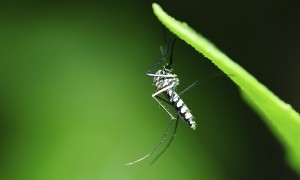Zika Virus: What You Need to Know
As the Zika virus continues to pose global health concerns, you may be wondering what precautions to take, especially if you will be traveling to an infected region.
Doctors of Osteopathic Medicine stress that anyone traveling or living in an area where the virus is present can become infected and should take precautions. The need for these safeguards can continue even after returning home – especially if you live in a region of the U.S. where the Aedes mosquito that transmits the virus is found.
“If an individual is infected with the virus and an Aedes mosquito bites them, they can introduce the virus into a new community,” says Mary Macgregor, DO, an infectious disease specialist and director of Travel Medicine Source in Morton Grove, Illinois.
4 Tips to Prevent Zika Virus
Postponing travel to any countries or territories where the virus is currently prevalent is the best protection against the Zika virus. If you must travel, the following tips can help prevent infection and minimize risk of spreading the virus:
- Apply mosquito repellent containing DEET, picaridin, IR3535 or oil of lemon eucalyptus liberally and throughout the day on anyone age 2 months or older.
- Wear long sleeves and pants.
- Treat clothing with Permethrin spray for an added layer of protection.
- Contact the local health department or travel medicine clinic with any questions or concerns about travel to an endemic area for a consultation prior to the trip.
Zika Virus and Pregnancy
The CDC reports that 20 babies have been born with Zika-related birth defects and there have been five Zika-related pregnancy losses, though the mothers in all these cases are believed to have become infected through travel.
“Babies born with microcephaly will endure lifelong health and developmental disabilities,” explains Mia Taormina, DO, chair of infectious diseases at DuPage Medical Group in the western suburbs of Chicago.
Pregnant women with confirmed Zika virus infection or those travelling to affected areas should have an ultrasound evaluation to look for signs of microcephaly, which can take six weeks or more to appear, says Scott Macgregor, DO, director of maternal fetal medicine at NorthShore University HealthSystem in Chicago’s northern suburbs. If results come back negative, ultrasounds should be repeated every four to six weeks, he says.
Know the Symptoms
“About 1 in 5 people infected with Zika will become ill and show symptoms,” says Dr. Taormina.
Infected patients may experience:
- Fever
- Rash
- Joint pain
- Conjunctivitis
Symptoms typically appear within two to 12 days after becoming infected. However, many people may not show any symptoms at all. Severe complications of the virus for non-pregnant individuals are rare but can cause significant and long-term health issues, including increased risk for Guillain-Barre syndrome, according to Dr. Taormina.
Visit the American Osteopathic Association’s Zika Virus Resource Center for additional patient resources.
